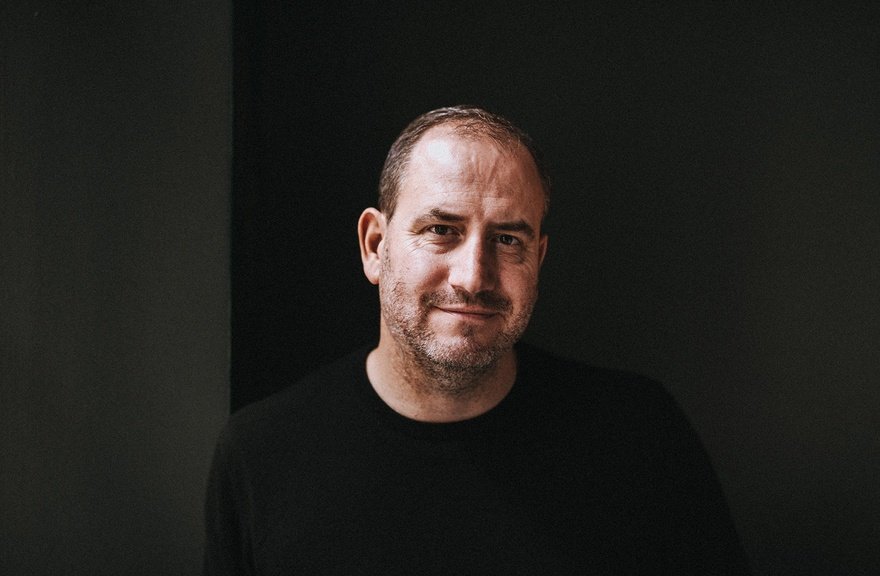With the hospitality staffing crisis worse than ever, employers using traditional means of finding staff are fishing in an increasingly small pond. Tom Vaughan speaks to the charities and schemes offering alternative routes to a new workforce.
Chris Gamm, chief executive of Springboard, is unequivocal about the state of hospitality's staffing crisis: "It's everyone's biggest problem at the moment. We're hearing a lot of horror stories out there."
Brexit and Covid have had a huge impact on personnel, and hospitality businesses are having to reduce their operations at a time when they should finally be reopening at full tilt. Last month, London's Le Gavroche was one of many to reveal the impact of the crisis, by announcing it was reverting to dinner-only service due to its reduced workforce.
With candidates so few and far between, it's time for employers to think differently, says Gamm. There are numerous schemes that aim to plug the staffing gap with creative means, giving chances to young, homeless, vulnerable, unemployed or formerly incarcerated individuals. Here are just a few of them.
The Kickstart scheme
What is it?
The Kickstart scheme is part of the government's Plan for Jobs strategy. Through years of close contacts with the Department for Work and Pensions, Springboard works as a gateway employer, working with employers to create job adverts, then helping to manage and fill that application using referrals from the Job Centre.
Why should you consider employing one of their candidates?
The government will pay the candidate for a six-month work placement in your business – 25 hours per week for six months, based on the national minimum wage, which can also be topped up. In addition, there's also a grant from the government of £1,500 per employee taken onto the scheme, for start-up costs and training.
"It's a no-brainer as far as I'm concerned," says Gamm. "You're getting a member of staff paid for by the government. And you go through a normal recruitment process to find them."
You're getting a member of staff paid for by the government
What are the challenges?
"They're not going to be a ready-made, polished candidate straight from one of your competitors with several years' experience," says Gamm.
"They could easily become a really important part of your workforce, but they are young and they will need your support along the way."
How can employers get involved?
Get in touch with Springboard to join the Kickstart scheme. "I think hospitality businesses still have very high expectations about what sort of candidates are out there and haven't embraced the full spectrum of sources for new staff," says Gamm. "They should definitely look at it as the future generation of their workforce."
Springboard to 2022
What is it?
"Springboard to 2022 is our solution to address the staffing crisis," says Gamm. "It's the biggest, most ambitious project that we've ever run. Our goal is to get 10,000 young people engaged, skilled and ready for work for next year."
The scheme aims to raise awareness of hospitality as a career, provide employability training for all levels of candidate – from low to high needs – and to support them finding employment within the industry.
Why should you consider employing one of their candidates?
"These are ambitious, motivated and super-engaged young people," says Gamm.
What are the challenges associated?
The target of 10,000 is huge, but Gamm says the scheme is on track to deliver that by 2022. "There's a long way to go on the project. We've got to find them, train them and get them to work, but we have courses running every day. We've got hundreds of people into work already."
How can employers get involved?
"We're going to deliver the training regardless because we've got the funding in place to do it. The big ask of the industry is if you can provide jobs for them," says Gamm.
"This is a big project, costing £5m, so those who want to work a bit more strategically with us on it and really showcase their brands – we would love to have a conversation."
Umbrella Training
Umbrella Training is a leading nationwide training and apprenticeship provider. It works with businesses to offer programmes to develop apprentices across kitchens and front-of-house, as well as supervisor and management levels.
Why should you consider employing an apprentice?
For a start, there is the immediate commercial benefit of £3,000 in a grant for every apprentice, running until 30 September, says Umbrella Training chief operating officer Jo Simovic.
Then, employers should consider the standard of training each apprentice receives over other entry-level staff: "By being on an apprenticeship programme, training and development starts immediately, and is in addition to any internal training they may receive from their employer," says Simovic.
By being on an apprenticeship programme, training and development starts immediately
"It is worth noting that training departments have been one of the many victims of the pandemic. Companies have limited resources available to organisations to develop people themselves."
What are the challenges?
Simovic says there are still countless incorrect preconceptions around apprenticeships.
"The main myths are that they are too complicated to organise, are only aimed at 16- to 18-year-olds or are only for entry-level team members. None of these are true," she explains.
"In addition, there has always been this view that apprenticeships are only designed for technical roles, such as being a chef. However, our apprenticeship programmes cover a multitude of areas within an organisation, including front-of-house, housekeeping and so on."
How employers can get involved?
Simple: consider employing an apprentice. "We'd urge people to keep an open mind," says Simovic. "This has to be the view, especially now, as organisations across the sector need to find new ways to tackle the recruitment challenges the industry is facing."
Only a Pavement Away
What is it?
The charity helps the homeless, vulnerable, ex-military and ex-offenders find jobs in hospitality, working with charities such as Crisis and the Prince's Trust.
"We are a conduit jobs board," says founder Greg Mangham. "Employers advertise jobs free of charge, and we enable the charities and organisations representing the three groups we deal with to advertise their candidates. So far, we have put 106 people into work."
Why should you consider employing one of their candidates?
"What you get from us is [the certainty] that if that person has been in prison, there are certain offences that we don't deal with. And you get a year's support from the charity or the organisation that represents these people. "These people have a [good] work ethic," says Mangham.
What are the challenges?
Mangham says that employers overcoming preconceptions is the biggest obstacle. "We had an employer at our employment fair who said to me: ‘Greg, I'm so embarrassed. Not one person was an addict or substance abuser, they are just people who fell on hard times or had a breakdown. My whole perspective has changed'."
How can employers get involved?
Advertise jobs on the Only a Pavement Away website, free of charge. "I'd love the hospitality industry to rally around and say ‘this is our charity for the employment of vulnerable people in hospitality'. We do all the legwork, all the employers have to do is show empathy and give people the job, and all the charities have to do is make sure that their people are work-ready."
Into Hospitality
What is it?
Founded in early 2021, Into Hospitality is an outreach programme that works with local housing associations in London to get people into careers in hospitality kitchens.
Candidates spend four days training, covering areas such as knife skills, kitchen set-up, interview and CV preparation, and one day in a work placement at a partner restaurant.
Why should you consider offering a work placement?
Co-founder Ella de Beer urges companies to give the candidates a chance. "The chef shortage is not new, but if we don't as an industry start to work on building a permanent UK workforce, we are going to continue to struggle with high staff turnover, unfilled vacancies and a massive skills gap."
What are the challenges?
"The challenges so far haven't been about convincing employers – we have people coming to us," says de Beer. "The challenges are finding the right employers in different areas of London."
How can employers get involved?
So far London restaurants including Café Murano, Padella, Hicce and Palomar Group have taken on work placements, but the scheme is still looking for more to be involved.
Beyond Food Foundation
What is it?
The charity provides training for those affected by homelessness, mental health problems, addiction and those with a criminal record.
"We support individuals to refocus on themselves, firstly with their wellbeing and mental health, and then we start to move into their employability," says founder Simon Boyle.
"This is not just a six-week programme to give them a new CV and get them back out in the workplace – it takes at least two years to make real change and adjustment."
So far, the charity has trained 6,000 people with 2,000 going through employability programmes, with 150 placed apprentices.
Why should you consider employing one of their candidates?
"Our apprentices may not have years of experience, but they do have good basic training and loyalty like you could never believe," says Boyle. "If you could imagine somebody who has lost everything, when they do find a job, they grasp it with both hands."
Our apprentices may not have years of experience, but they do have good basic training and loyalty like you could never believe
What are the challenges?
Many businesses have an innate wariness of hiring someone with a criminal record or who has been homeless, says Boyle, but he urges them to reconsider.
"People have to get through life and sometimes they make choices that are not the right ones, but that doesn't mean they are that person forever," he explains. "I have never had anyone of my apprentices steal, nor have I experienced any act of violence. And just because they are homeless and maybe have not worked for a long time, doesn't mean they are lazy – what they need is a chance."
How can employers get involved?
Talk to Beyond Food about hiring one of their apprentices. "Rather than use agency staff at a really high cost, who often have little or no experience, put your money into something that makes a big difference. Yes, they may be vulnerable but they also might be very gifted, creative people who could add value to your business."
Case studies: Beyond Food
Fawzia Mirza
After moving to Pakistan a decade ago with her husband, Mirza was forced to flee the country to escape what had become a suppressive, violent marriage. She arrived back in the UK homeless, penniless and with three young children.
"My journey saw me returning to London, struggling to find a place of my own, taking solace in alcohol and eventually finding a support group that would help me identify my love of cooking and put me in touch with Beyond Food," she says.
Training with the charity at the Brigade Bar + Kitchen in London, Mirza built herself a new life in the hospitality industry, going on to secure jobs in the kitchens of Harrods and the Dorchester hotel. "When I first walked through the doors at Brigade, never in my wildest dreams could I have imagined what was ahead of me. Now I'm working in the kitchen at one of London's best-known hotels."
Ben Graveston
Graveston served 18 years in the army, working his way up through his local infantry battalion before becoming a combat medic and serving in Afghanistan, where he had to "deal with the worst trauma war can bring," he says.
It was there, in Helmand Province, that he was bitten by a tick in 2008 and caught Q fever. "It destroyed my body and, in time, my mental health," he says.
While hospitalised in the UK, he met the Beyond Food team and was accepted onto the apprenticeship scheme. "I am not going to lie, it was tough leaving hospital and doing the course," he says. But since qualifying, he was worked in the kitchens of London private members' club the Conduit Club and the Market Table restaurant in Greenwich. He has also cooked in France and Norway and currently works supporting veterans.
Staffing Summit
Don't forget to sign up to The Caterer's Staffing Summit, which takes place on 22 July. This online event will explore how hospitality can better promote the career options available in the sector and highlight the organisations that can assist businesses in finding new recruits.
Sign up to hear expert panellists discuss the following:
- Ways to re-engage your workforce and plug the employee gaps
- How the industry can help restore confidence in the sector
- Case studies from creative businesses filling vacancies
- Why employee wellbeing will be a vital post-pandemic
- How to stand out as an employer in a crowded market.
Register for a free place at the Staffing Summit
Illustration: Chief Crow Daria/shutterstock.com
Continue reading
You need to be a premium member to view this. Subscribe from just 99p per week.
Already subscribed? Log In













